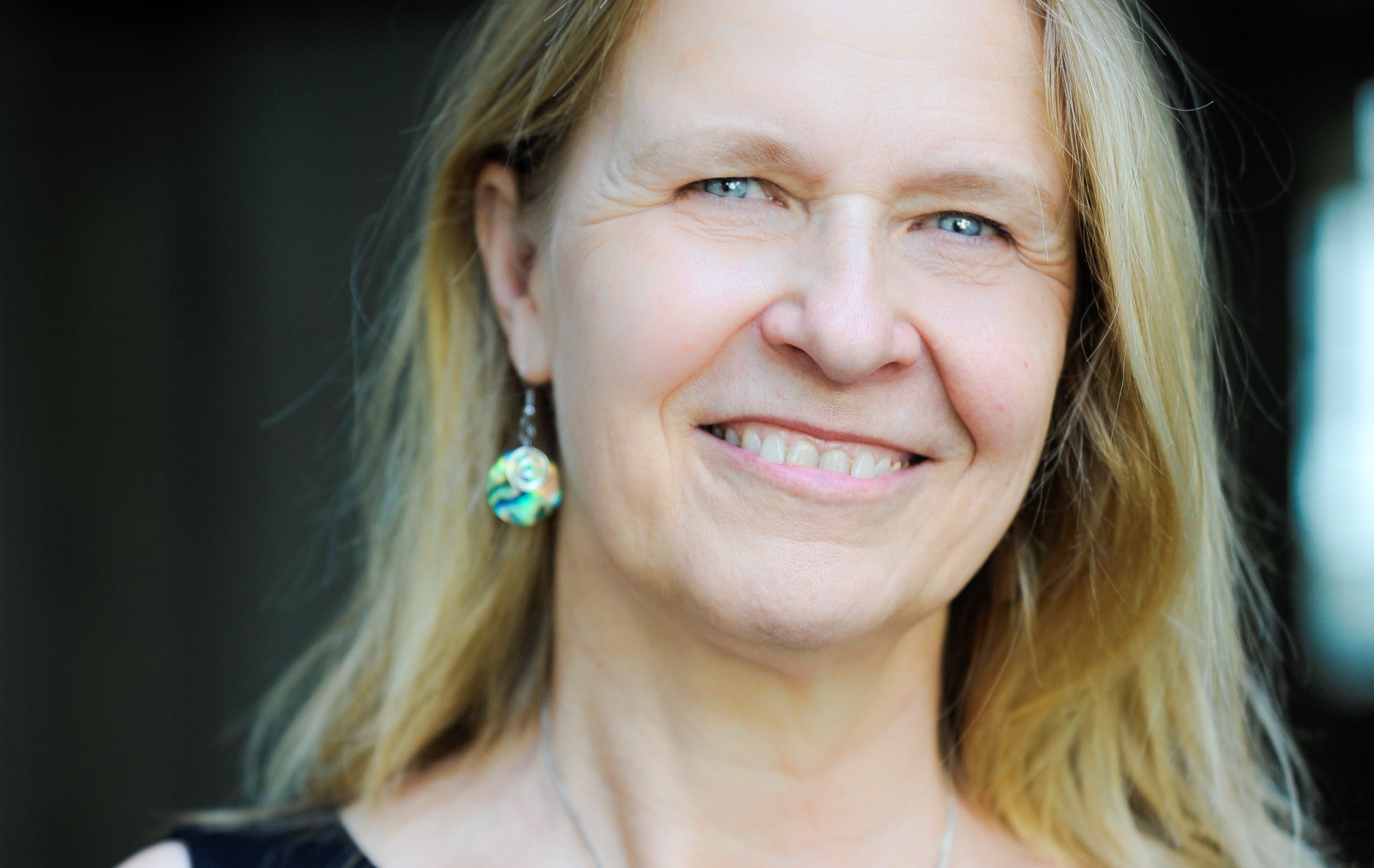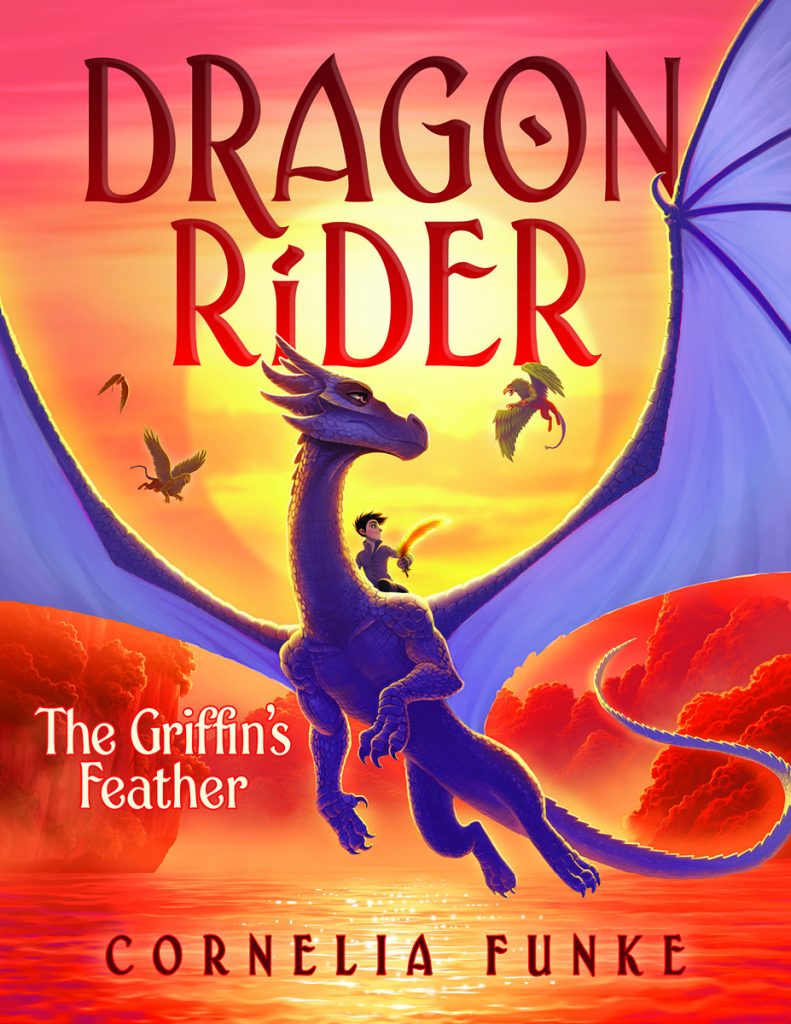
In Conversation with Cornelia Funke
In May, the famous German writer Cornelia Funke will visit Ottawa to speak at the Ottawa Writer’s Festival. The event is sponsored by the German Embassy which is why SoGerman had the opportunity to ask Cornelia some questions.
In case you are wondering, the smileys were included by Cornelia herself!
You will visit literature festivals and give readings in Canada this year. Have you ever been in Canada before?
Yes, I have been to Canada quite a few times, both to Toronto and Vancouver.
What do you like the most? What do you find surprising?
I always found the audience to be especially wonderful, so warm, witty and well read, very open with brilliant questions. I hope this doesn’t sound like I want to flatter the Canadians 🙂 But each event in your realm was so far very memorable and extremely entertaining.
You have a special passion for books. Who is your favorite author? Which genre do you prefer?
I am a book eater and I like a variation of dishes, be it poetry or non-fiction. At the moment those two genres are my favorite book food as in my experience it sadly influences my prose to read other authors while writing a new book…which I always do. I currently enjoy very much to read Michael Pollan, Denise Levertov – and Shaun Tan 🙂
Are there any Canadian authors you find remarkable?
Michael Ondaatje and Margaret Atwood have always been amongst my favorites. I especially love Atwood’s The Blind Assassin and Ondaatje’s Anil’s Ghost.
Today, many other mediums are competing with the classic book. Primarily the smartphone is in the hands of young people all the time. Do you think reading habits have changed? Does reading have the same popularity it had ten years ago?
The smartphone is in EVERYBODY’s hands all the time! It’s so strange that most comments only mention younger hands. And yes, of course reading habits changed as for example storytelling on our home screens became so much better. There is so much brilliant writing to be found on TV that I often prefer that in the evening, as I work with words all day – and sometimes suffer from word poisoning after many hours of writing 🙂 But – to be fair – when I was young I wasn’t exactly surrounded by a crowd of passionate readers! I was one of a few who were book addicts! 🙂
You have inspired many young writers. What advice can you give to young students interested in a career in writing?
Always write your first draft by hand into a notebook. The computer takes all the playfulness and fools you to believe the first draft is already in print.
Your books are made for children and teenagers. Nevertheless, many adults enjoy reading your books. Have you ever thought about writing a book just for adults?
My books are for everybody. I am a storyteller – which means entertaining whoever shows up to sit by my fire.
You have lived in Los Angeles for 14 years now, do you write your books in English or German?
Both by now.
As a child, you wanted to be an astronaut. If your life had taken a different turn, what job do you think you would like to have?
I would love to work in nature preservation.
You are also publishing your stories as audio books. What do you find fascinating about audio books? What are the advantages and disadvantages compared to classic books?
The human voice makes words come alive. Storytelling was originally oral. But it needs to be the right voice!
The Wild Chicks, Ink Heart and The Thief Lord were filmed and brought to the cinemas. Is it weird for you to see how your figures are filled with life and your worlds are arranged by set designers?
Sometimes it feels very weird – and wrong! – indeed. Sometimes it is pure magic when they get it right. Sadly they usually don’t 🙂
How do you react if a film maker wants to cut out parts of the story? Is it easy for you to agree?
I often don’t find that to be hard as selling movie rights means accepting the fact that the richness of a novel needs to be shrunk for the big screen. Which makes TV so much more interesting. But I find it unacceptable when an adaptation changes my characters – which is happening with Dragonrider at the moment.
Your stories take places in fabulous, dreamlike worlds. Where do you get inspiration for your worlds and their landscapes? Where would I need to go if I wanted to feel live in one of your worlds?
Everything we imagine is inspired by this world! In my opinion we are incapable of coming up with something that doesn’t have roots in this reality. Therefore you can go anywhere in this world and you’ll find the sources of my worlds. They are all a love song for this world.
Are you expanding your already existing fantasy worlds or do you think about creating a new universe next to the ink world and the mirror world?
At the moment I am working on sequels of Reckless, Inkworld and Dragonrider, my three universes (the mirror and the Inkworld actually being the same one, just separated by 500 years). I do like to additionally do projects that are not related – I just did a novelization of Pan’s Labyrinth, an experience that was a completely new creative adventure and I plan to do a book on plants with an herbalogist – but I don’t think I feel the need for another universe 🙂 Nevertheless – let’s see! The stories usually find me.
What are you currently working on?
Dragonrider 3, first draft, Reckless 4, third draft and concepts for the plant book mentioned above, a story about a broken cello and The Color of Revenge, which will be the 4th Ink-book.
You created your own social foundation, The Rim of Heaven, you care about the environment and you are a vegetarian. Do your books contain political messages as well?
Every writer’s books contain his or her thoughts on the world. Our stories reflect our fears and hopes, and of course also our religious and political beliefs. So one could call that a message, but I prefer to believe that my texts ask questions we all ask and express the hopes and fears we all share. I have great respect for my readers and don’t see myself as their all knowing teacher. Writing is a dialogue with them for me. I hope my stories sometimes give words to those who can’t find them and that they sometimes may inspire understanding or question prejudice, but once again… I am careful with the delivery of messages. I believe I came closest to that writing A Griffin’s Feather as I am so deeply worried about how estranged we all are from nature by now.
By the way – I still eat fish 🙂 Though the more I know about them the more I doubt that decision.
You have been writing books for over 30 years. Do you ever think about retirement?
Neither writers nor illustrators – and I am both – need to think about that. I guess we all dream about dying a pen or brush in our hands.
In 2019, you are the patron of the project “Friends Without Borders”. It is a writing competition where young writers can contribute their texts about friendship. What motivated you to participate in the program?
Friendship is for me the most beautiful and important word in any language.
Always write your first draft by hand into a notebook.
Update:
Watch Part 1 of Cornelia Funke “On Creativity: One on One with Cornelia Funke” at the Ottawa International Writers Festival.
